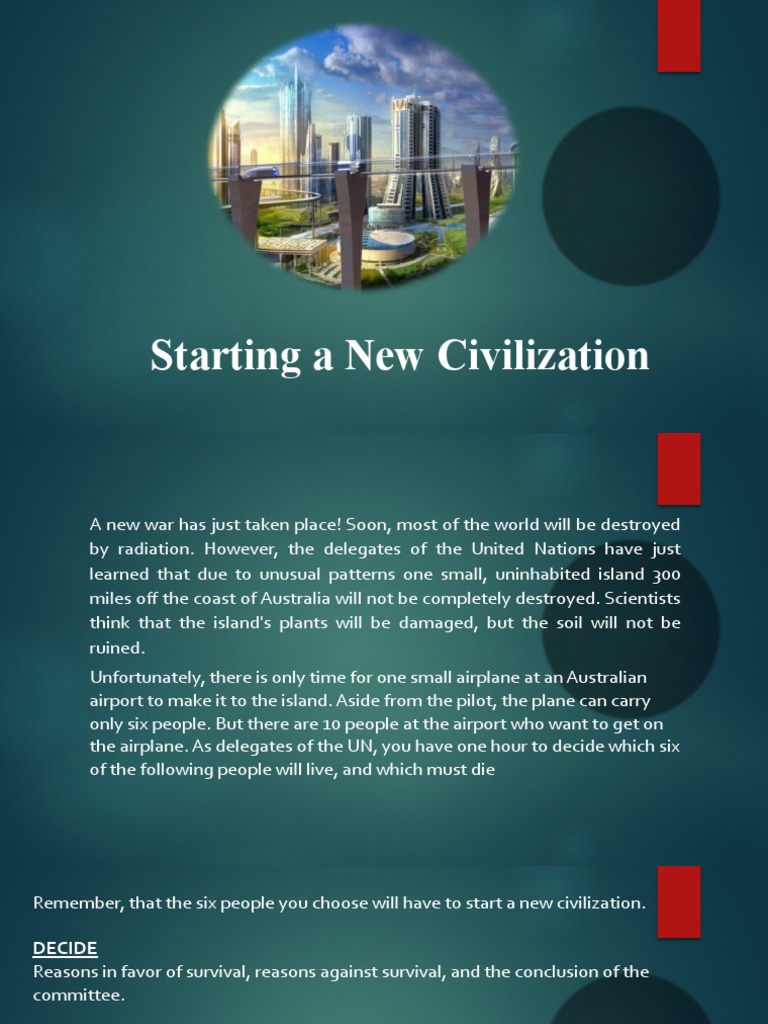The Bahá’í Faith, a relatively nascent religious movement founded in the mid-19th century, provides a compelling framework for understanding the emergence of a new type of civilization. Central to Bahá’í teachings is the concept of unity—unity of God, humanity, and the core tenets of religion itself. This overarching principle of unity proposes a radical departure from traditional notions of societal development, advocating for a holistic and integrated approach to civilization-building that highlights the interdependence of all human beings.
One of the cornerstones of Bahá’í thought is the assertion that humanity is on the cusp of a profound transition towards a new world order. This transformation is predicated on the belief that humanity has now reached a collective maturity, necessitating the establishment of a civilization that transcends sectarian boundaries, cultural divides, and national affiliations. This anticipation of a new civilization is not merely idealistic; it is grounded in the practical implications of Bahá’í teachings which emphasize social justice, economic equity, and global peace.
Bahá’í writings articulate a vision that amalgamates spiritual and material progress. Shoghi Effendi, one of the key figures in the Bahá’í Faith, elucidates this vision as a dual process whereby spiritual principles guide material advancements. In essence, the pursuit of knowledge, science, and technology must be harmonized with ethical considerations and moral imperatives. This integrated outlook engenders an environment conducive to the flourishing of both individual and collective well-being, fostering a new civilization characterized by compassion, creativity, and cooperation.
The Bahá’í teachings provide a robust analysis of contemporary socio-economic challenges. In an age where burgeoning inequality permeates societies, Bahá’í doctrine calls for the establishment of a just economic system that prioritizes the welfare of all over individual gain. Such a paradigm shift demands an evaluative lens that scrutinizes existing socio-economic structures, urging a reconfiguration to mitigate disparities while uplifting marginalized communities. The principles of equity and justice serve as templates for constructing a new economic reality, fundamentally reshaping cultural narratives surrounding wealth distribution and social responsibility.
A profound observation by adherents of the Bahá’í Faith is the intrinsic connection between the advancement of civilization and the empowerment of women. This empowerment is not merely a moral imperative; it forms the bedrock upon which future societies will flourish. Bahá’í teachings enshrine gender equality as a prerequisite for societal transformation. The elevation of women fosters new paradigms of leadership and societal organization, thereby fortifying the foundations of a new civilization in which all voices are harmoniously integrated. In this light, gender equality is not a peripheral issue but rather a catalytic agent for profound and lasting change.
The aspiration for a new civilization necessitates a radical rethinking of educational paradigms. In Bahá’í belief systems, education transcends rote memorization; it embodies a holistic approach that nurtures the moral, intellectual, and spiritual capacities of individuals. Such educational frameworks are envisioned to foster critical thinking, creativity, and ethical awareness, cultivating individuals who are equipped to contribute constructively to society. The proliferation of accessible, quality education is heralded as a powerful mechanism for social transformation, one that can cultivate the consciousness necessary for the realization of a unified global community.
The Bahá’í perspective also grapples with the ecological crises confronting contemporary civilization. In recognition of humanity’s symbiotic relationship with the natural world, Bahá’í teachings assert the necessity for a sustainable civilization model that respects and preserves environmental integrity. By promoting responsible stewardship over natural resources, these teachings encourage a radical recalibration of human interactions with the environment. By doing so, a new civilization can emerge, one that harmonizes technological advancement with ecological sustainability, ensuring a viable existence for future generations.
Furthermore, the Bahá’í vision of a new civilization is deeply rooted in the potency of community. The subjugation of individualistic tendencies to the collective good remains a guiding principle. This communal ethos engenders solidarity, propelling cooperative efforts in addressing social issues and fostering an overarching sense of belonging. The cultivation of a global community transcends geographical and cultural separations, engendering a new civilization where unity and diversity coexist symbiotically. This is imperative in the quest for stability in increasingly fragmented societies.
Ultimately, the Bahá’í teachings present a multifaceted approach to reimagining civilization that is as urgent as it is profound. It invites a thorough examination of various societal dimensions, including justice, equality, education, environmental sustainability, and community engagement. Each element interlinks strategically to form a cohesive vision of a future that is not only desirable but also achievable. This prophetic vision, articulated by the successors of Bahá’u’lláh, serves as a clarion call for humanity to collectively endeavor towards constructing a new civilization grounded in the principles of unity, peace, and justice. It is an invitation to transcend historical legacies of division, harnessing the collective potential of humanity to forge a path toward a harmonious global society.
